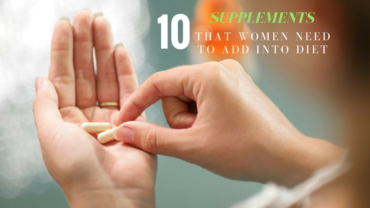STD Myths That You May Be Believing Still

Sexually transmitted diseases (STDs) are a frightening subject to discuss. It is the fear of how individuals can possibly acquire it. Just about everyone feels uneasy when speaking about STDs, and consequently they try to not discuss it whatsoever. It is difficult to comprehend what an STD is about because it is barely discussed by the majority of people.
9 STD Myths You May Still Believe
Since most people refuse to talk about STDs for many some reasons, this leaves people with various misconceptions or myths regarding STDs. The following are common nine STD myths which you may still believe, and the actual truths:
Myth # 1: You cannot get an STD from anal or oral sex
This is the most common misconception about STDs. Many men and women assume that you will not get infected with STDs as long as you steer clear of vaginal sexual intercourse.
The Truth: Assuming STDs cannot be acquired from oral or anal intercourse is wrong. It is this specific misconception about STDs that led to the widespread of the disease among plenty of people. In fact, the chances of getting STDs from vaginal intercourse are just the same as anal or oral sex. This happens when you have tears or cuts in your mouth or anus because the STD virus can circulate through there.
Myth # 2: You cannot acquire STD from a hot bathtub
Some couples who are sexually active believe no harm will come to them when they perform sexual activities in a hot bathtub. Meanwhile, others believe that the sperm and bacteria leading to STD do not survive or get killed due to the chlorine and warmth from a bathtub.
The Truth: If you and your partner frequently do sexual activities in a hot bathtub, the risks of getting infected is fairly significant. You must not believe that chlorine can kill bacteria or viruses leading to STD. This is simply because the odor is similar to a disinfectant. In the event that you have sex with a partner who is STD positive, then the risk of getting infected is high.
Myth # 3: You cannot get an STD when you consume oral contraceptives
Most women believe that they are safe from STDs if their contraceptive is birth control pills.
The Truth: From the name it carries, birth control pills do not protect you from STDs. Their objective is to help keep you from getting pregnant. Moreover, the only birth control options that can keep you safe from STDs are abstinence and condoms.
Myth # 4: You cannot get infected with the same STD the second time around
People like to think they aren’t likely to be infected with the same STD the second time. They believe their body is already resistant to that STD disease.
The Truth: This isn’t accurate at all because in the event that you continue having sex without having any sort of protection, you’re very likely to become infected. STDs such as syphilis, gonorrhea and chlamydia can be treated⎯but it does not imply that you are already immune or resistant to it. In reality, there are various STDs such as HIV and herpes which will chronically stay with you.
Myth # 5: You cannot get infected with STD if you only have one sexual partner
It’s true that a good deal of sexual partners can make you more susceptible to sexual diseases. However, it does not indicate that having only one sexual partner safeguards you from STDs.
The Truth: In monogamous relationships, the odds of becoming infected are still fairly significant. If your spouse has a history of several sexual partners, it might be that there is an STD from a number of years back that may nevertheless be transmitted to you.
Myth # 6: No need to be worried about STDs if there is no penis involved, or if you are a lesbian
Some girls with female spouses seem to assume that STDs can only be transmitted to others when a penis is involved in a sexual activity. Lesbians believe that having sex with other women can protect them from sexual infections.
The Truth: Sure, lesbians might not be as likely to get infected with STDs as heterosexual girls or homosexual men, but it does not signify they’re safe. You’re still likely to be infected even in the event that you only have intercourse with women. Bear in mind that STDs are not only transmitted through penis-vagina intercourse.
Myth # 7: You cannot get infected with STD if you’re wearing a condom.
While it’s true that condoms do provide you with a particular level of defense from STDs, there are still instances where it cannot protect you from getting STDs.
The Truth: Surprisingly for others, you may still get infected even when you’re wearing a condom during sexual activity. There are various STDs which may be transmitted from skin-to-skin exposure or contact. STDs that can be transmitted even with the presence of condom include:
- Pubic crabs or lice
- Genital herpes
- Human papillomavirus (HPV)
- Molluscum contagiosum
- Syphilis
Myth # 8: It is unlikely to get infected with STD if there are no visible symptoms, or you don’t feel anything wrong in your body
Sexually active people like to believe that they do not have an STD when they feel fine.
The Truth: Even if you neither see nor sense any symptoms of STD in your body, it does not indicate that you’re not infected. In fact, many STDs are asymptomatic, meaning they do not demonstrate any symptoms. The only method to detect if you have STDs is to have yourself tested, most importantly if you are sexually active.
Myth # 9: You cannot have two STDs simultaneously
Most people assume that it is unlikely for them to be infected with two STDs concurrently.
The Truth: If you are having sexual activities with a partner who possesses a number of STDs, then the odds are you will also get infected with multiple STDs. Doctors describe this occurrence as co-infection. Various STDs go hand-in-hand such as gonorrhea or chlamydia.
Conclusion
Remember the myths we have provided so you have ample knowledge on how not to acquire STDs. As you can see, the sort of sexual activities you do, how often you have sex in a week, or the number of partners you have do not matter. The bottom line is, you are likely to get infected with STDs if you are sexually active and not knowing some STD symptoms can lead to serious health problems.
Angela Hall
Angie is a health enthusiast who specialises in spreading STD education including information on STD symptoms across the country. She enjoys what she does and loves to travel to different areas. She loves to write for websites and is a family girl at heart.
Recommended For You
10 Supplements That Women Need To Add Into Diet
Most Inside
Most Inside offers high-quality recommendations and valuable updates to enhance all aspects of your life, providing premium guidance and enriching experiences.




